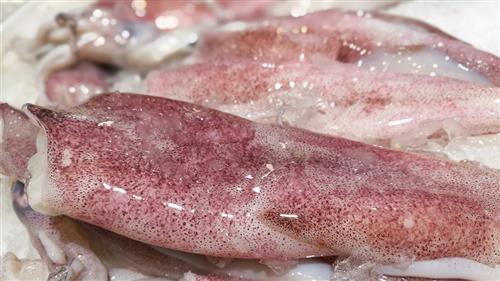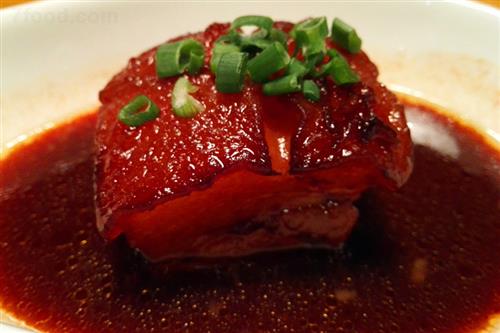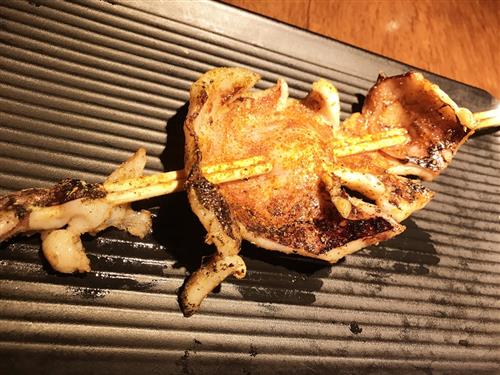Squid is a common seafood, whether it is at the family table or food street, can see its presence. Squid can make a variety of dishes, such as squid squid, grilled squid skewers, steamed squid rings, stir-fried squid, etc., can also be processed into squid, squid and other casual snacks, deeply loved by the majority of customers. However, there has been a saying that "one squid is equivalent to 40 fat" on the Internet. Especially for those who lose weight, they must be taboo to eel. This has also caused many food lovers who like to eat squid to worry about it. After all, the meat grows and they want to get rid of it. It's hard. So does eating squid really make people fat? What do you need to pay attention to when eating squid?

The nutritional content of carp
Carp is rich in protein, amino acids, taurine, vitamins, fats, cholesterol, and trace elements such as calcium, iron, zinc, selenium, and potassium. According to the determination, every 100g fresh squid contains 84 kcal calories, cholesterol 233 mg, fat 1.6g, protein 17g, sodium 134.7 mg, selenium 13.6 micrograms, vitamin A 16 micrograms, vitamin E 0.94 mg, magnesium 61 mg, sodium 134.7 mg, calcium 43 mg, potassium 16 mg, zinc 1.36 mg, and iron 0.5 mg. It also contains copper, riboflavin, peptides, and taurine that inhibit cholesterol. There are slight differences in the composition of different species of squid, and dried squid contains approximately 849g of cholesterol per 100g.
Fatty nutrients
The fat meat here is fat pork. Its main ingredients are fat, cholesterol, protein and phospholipids, and vitamins. According to the determination, each 100g of fat contains 632 kcal calories, protein 2.4g, fat 88.6g, cholesterol 109 mg, vitamin E 0.24 mg, sodium 19.5 mg, selenium 7.78 μg, retinol 29 μg, niacin 0.9 mg, potassium 23 mg, zinc 0.69 mg, selenium 7.78 micrograms, iron 1 mg, and calcium 3 mg, in addition to copper, manganese, and thiamine.

Is it true that a squid equals 40 fat?
Through the comparison of the above two food nutrient composition data, we can see that the cholesterol content of squid is indeed higher than fat, but it does not reach the so-called 40 times as big difference. The protein, amino acid, and trace elements such as calcium, iron, zinc, selenium, magnesium, and sodium in squid are significantly higher than those in fat, which is beneficial for promoting human development and preventing anemia. At the same time, salmon also contains taurine that inhibits cholesterol in the blood. However, the fat and calorie content of fat is much higher than that of squid. The calorie content per 100g is 632 kcal and the fat is 88.6g. Most of them are saturated fatty acids, while the squid are 84 kcal and 1.6 g, respectively. Saturated fatty acids are extremely detrimental to cardiovascular health, and adult intake should not exceed 50 g per day. In summary, the argument that a carp is equivalent to 40 fat is wrong, and the nutritional value of carp is better than fat. The residents' dietary guidelines recommend that the daily intake of cholesterol in foods should not exceed 300 mg, so if it is not consumed, it is not a "terminator of weight loss."

These people should not eat salmon
1, aquatic products are mostly cold food, spleen and stomach people should not eat more squid.
2, carp cholesterol content is extremely high, cardiovascular diseases such as high cholesterol, atherosclerosis, high cholesterol and other people should not eat carp.
3, people who are allergic to seafood and suffer from severe liver disease should not eat salmon.
4, eczema, urticaria, skin allergies and other skin diseases should not eat carp, because the carp is hair.
Sodium Erythorbate Fcc Grade,Sodium Erythorbate Powder,Sodium Erythorbate Food Additive,Food Grade Sodium Erythorbate
SHANDONG BAISHENG BIOTECHNOLOGY CO., LTD , https://www.baishengbioproducts.com